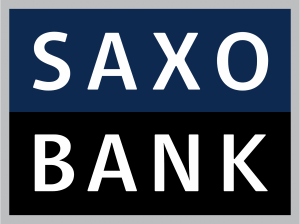Kraken to delist USDT, DAI, and other stablecoins in Canada
Kraken announced plans to suspend transactions involving USDT, DAI, WBTC, WETH, and WAXL within Canada in the next two months. Several other cryptocurrency exchanges have taken similar actions in 2023, discontinuing support for specific assets due to regulatory challenges.

The write-off of the world’s largest and most liquid stablecoin came as the Ontario Securities Commission (OSC) has banned crypto exchanges operating in the region from touching Tether (USDT). The decision dates back to 2021 when the stablecoin was deeply linked to alleged market manipulation, and it was the only prohibited digital asset in the country.
Per a Cointelegraph report, Kraken currently scrutinizes the assets they offer to ensure that they adhere to the compliance benchmarks within the dynamic realm of cryptocurrency.
Furthermore, regulatory roadblocks that seemed to plague these exchanges might also be the culprits behind some platforms choosing to exit the Canadian market entirely. In August, Coinbase ceased trading Tether, Dai, and Rai, while Crypto.com also delisted Tether earlier.
Additionally, exchanges like OKX and Binance have withdrawn from the Canadian market entirely. Other notable exchanges that followed suit include Bybit, Paxos, dYdX, and Bittrex.
However, in Kraken’s scenario, the exit strategy does not seem to be on the cards. The platform is indicating its intention to persevere with its Canadian operations, albeit with a temporary halt on transactions for certain digital assets.
Canada’s primary securities governing body provided further details on its interim approach towards the trading of stablecoins, dubbing them as value-referred cryptoassets. Earlier this month, the CSA recognized the increasing relevance of stablecoins for Canadian users.
Building on this recognition, the CSA said it could allow trading of certain stablecoins that are pegged to a solitary fiat currency. These specific stablecoins, termed as fiat-backed cryptoassets, would be permitted to be traded under stipulated terms and conditions.
Drafted after taking into consideration feedback from various players in the Canadian cryptocurrency domain, these temporary terms primarily address concerns related to safeguarding investors in the context of stablecoin transactions.
As per these conditions, it’s mandatory for stablecoin issuers to maintain a suitable reserve of assets with a regulated custodian to protect the interests of cryptoasset holders. Moreover, both the issuers and the trading platforms offering these stablecoins are required to disclose information regarding their governance, operations, and asset reserves to the public at large.
Earlier this year, in February, the CSA took a stringent stance against crypto trading platforms, prohibiting them from enabling the purchase or deposit of stablecoins without acquiring regulatory approval in advance.
Adding to this, the CSA issued a month-long deadline for unlicensed crypto trading entities operating in Canada, compelling them to initiate the registration process or halt their operations within the nation’s borders.









